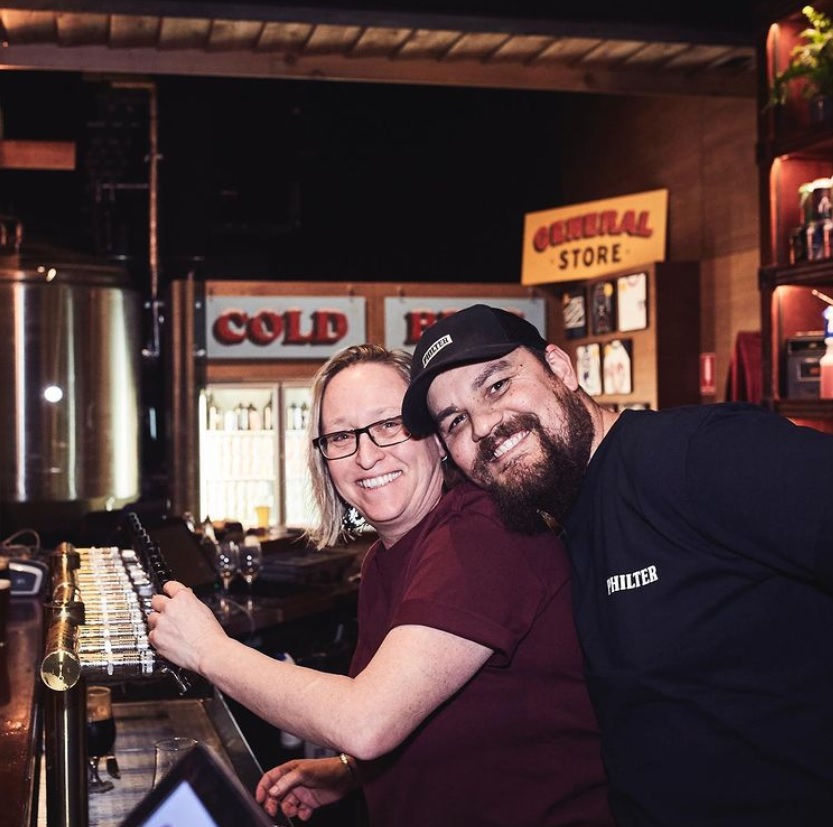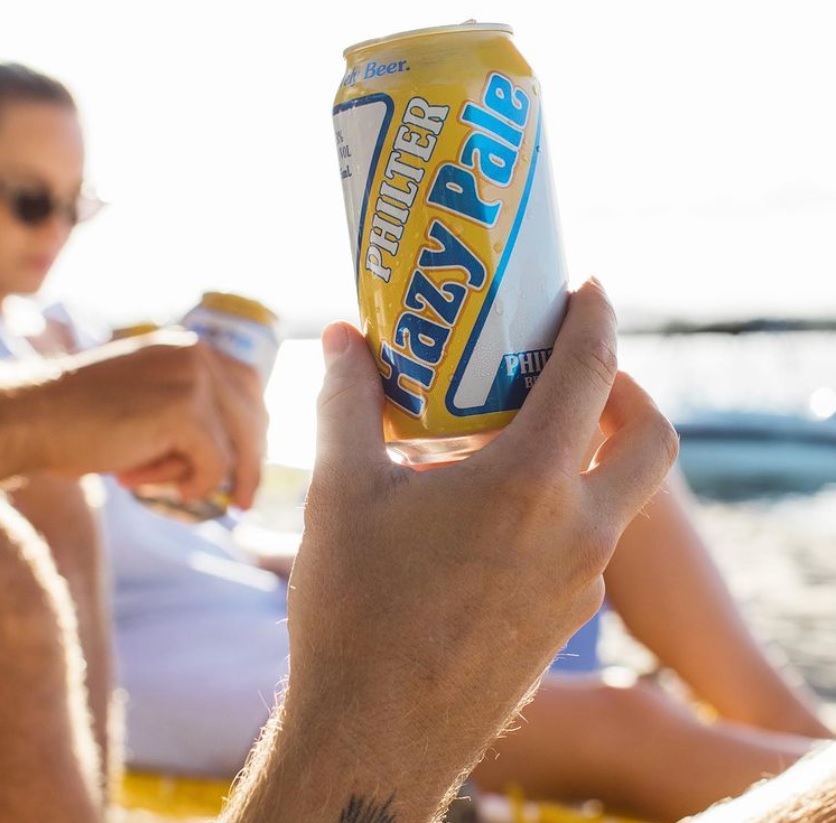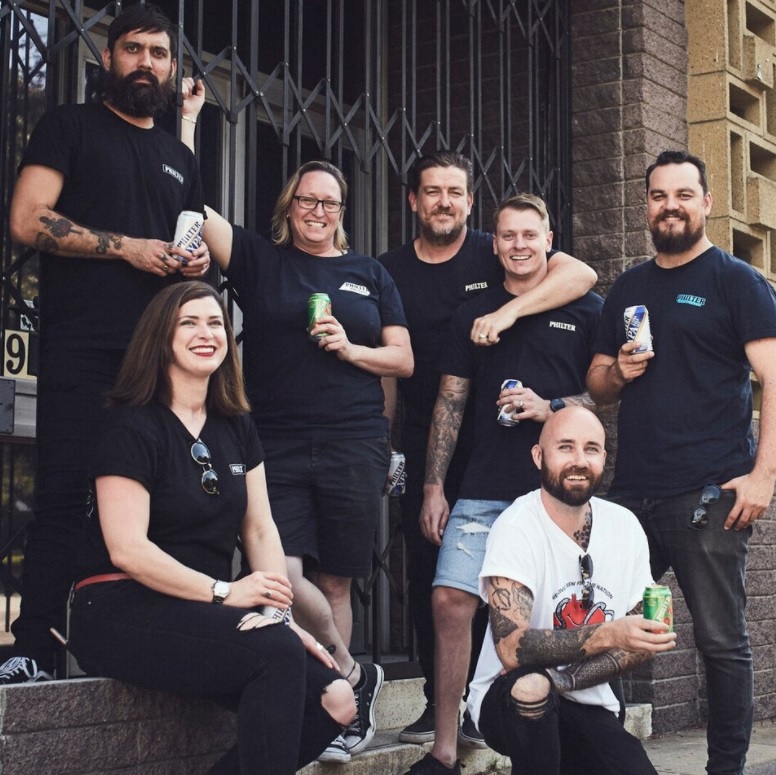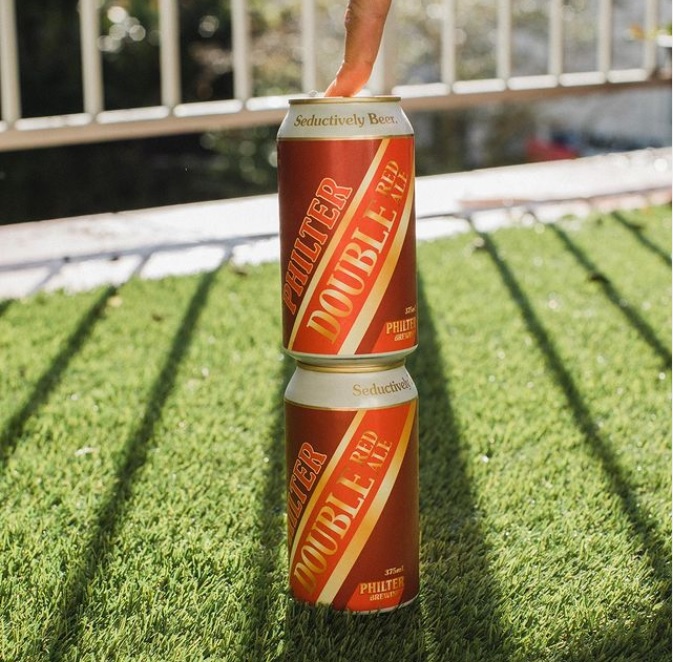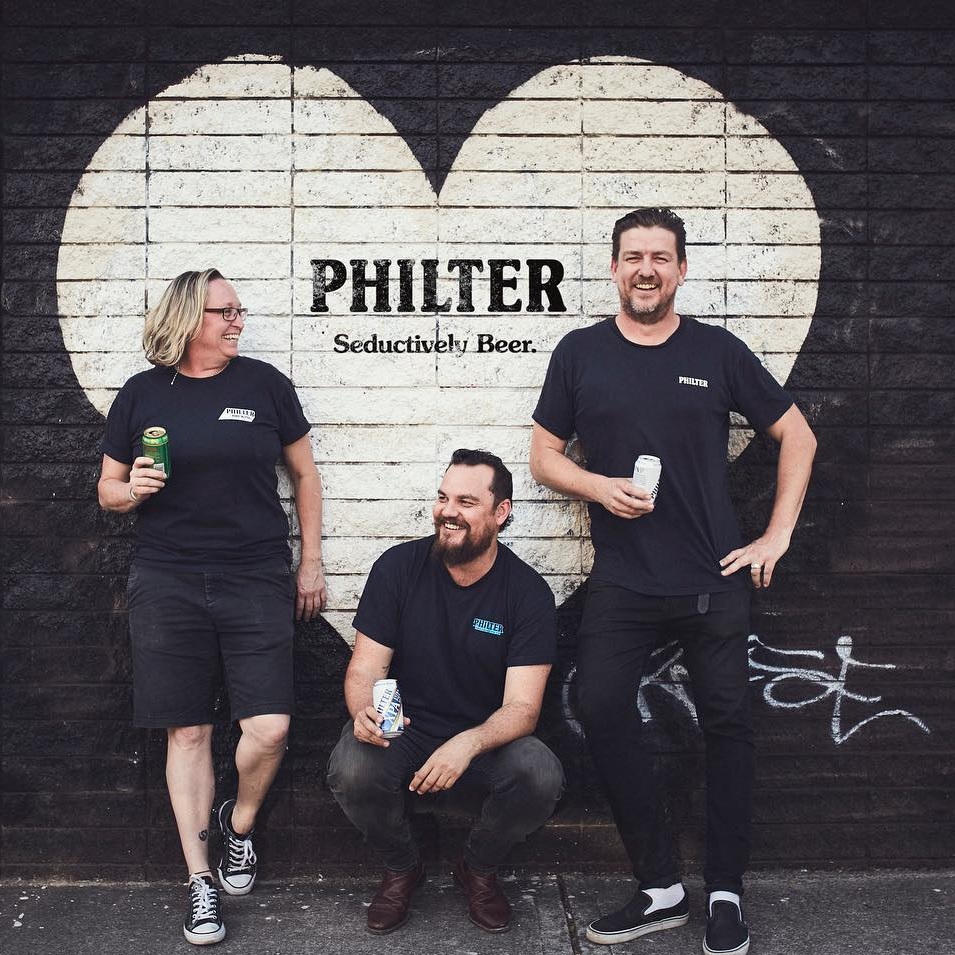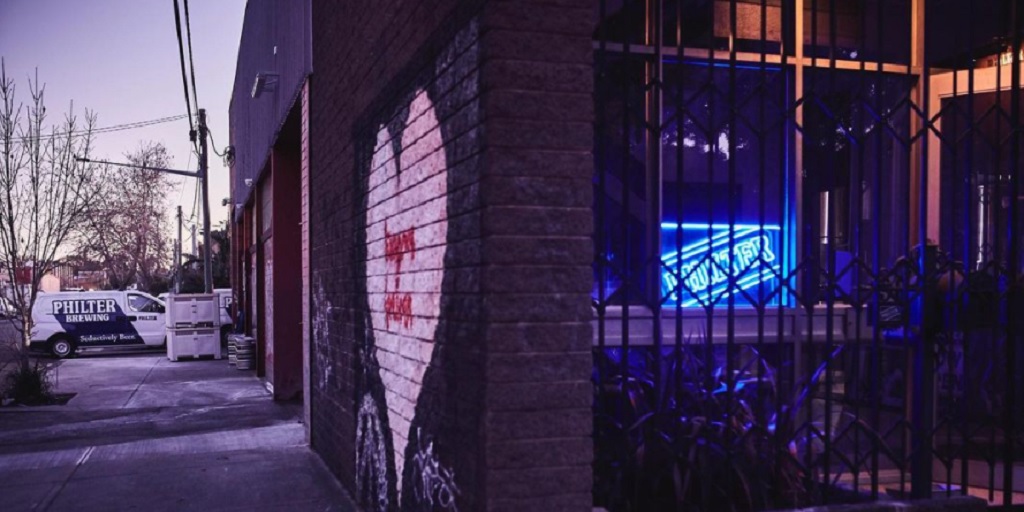
One Year On... Philter Brewing
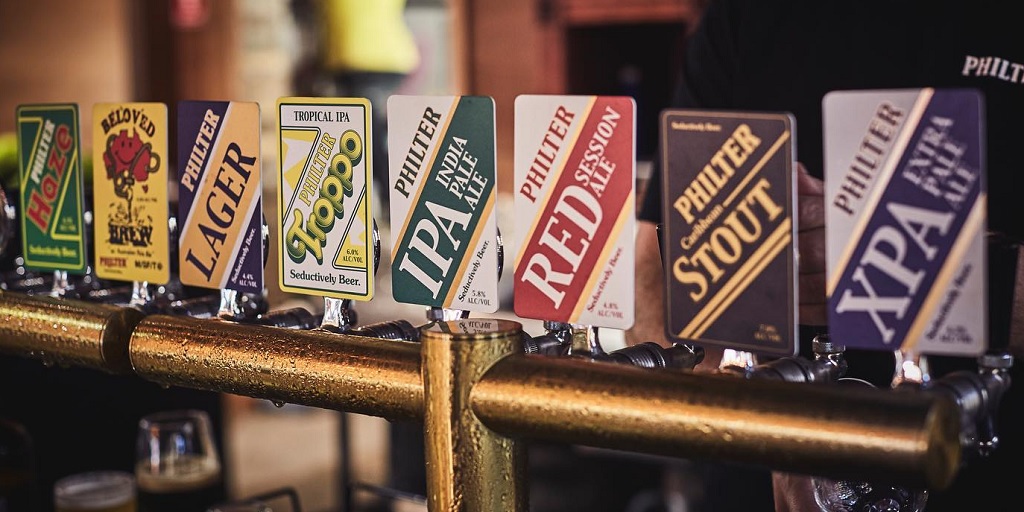
It has been a year since Sam Fuss, Mick Neil and Stef Constantoulas launched Philter Brewing’s own venue after a three-year search for a site.
But finding the right location in Marrickville seemed like a minor worry compared to what was to await them upon opening. The Philter brewpub, like several others, opened for the first time in-between snap lockdowns and a global pandemic.
“It’s been interesting! Very rewarding, but also challenging,” explained co-founder Mick Neil.
“I think the hardest thing is for us is to actually realise the operation’s full potential due to COVID-19. In the whole 12 months of having the venue, we only experienced about four to six weeks total of being allowed to stand in the venue.
“So we’ve been hamstrung by that a little bit, but it’s exciting to look at it and think when we do get back to normal, this place is going to be amazing and it will really pay us dividends.”
The move from nomad beer brand to bona fide brewery is a move many brands can only dream of and aspire to.
“Moving from being a gypsy brewer to a vertically integrated brewery with front-to-end production capability, has been amazing for the business,” admitted Neil.
“We can be nimble, test new products the way Sam [Fuss, head brewer] wants them and bring them to market without relying on someone else to do it.
“The other bit is the cash flow – it is so much better. Everyone says it, but we took the choice to start as a gypsy brewer because we want to build the brand before the brewery, a lot of people do it the other way. But now we have space, it allows us to take control of our own destiny.”
While it might be a slightly different route than others, Philter’s strategy has been well-developed from the beginning.
“We would never have been able to build a brewery of this size [in the beginning]. We’re having growing pains already even though we’re comfortable in this space, and despite the fact we’ve maxed out what we can do here without expansion,” said Stef Constantoulas.
Like many others, Philter has done the ‘pivot’ during COVID.
“We’ve had a bit more focus on the online store, offers and packs, so that’s been going really strong and that’s all we can do right now,” said Constantoulas.
“But we’ve had a bit more time, with not servicing pubs and bars. It’s allowed us to get a bit more focused on bottle shop and off-premise trade, which is really exciting from a business development point of view.”
The team have in fact not just been treading water in this period, but growing.
“We put on new staff in June and it’s about growing for us. We can’t take a backward step – we’re not going to succeed if we sit back, that’s not our approach.”
Philter beers
“The other piece, for us here, has been creating new products. It’s fun for us to be more nimble, create more products and figure out what Philter is beyond what we thought our core values were,” explained Mick.
“It’s just about great beer and no bullshit for us. We’re very true to styles and during the course we’ve discovered the strategy that is right for Philter.”
Philter have in the year launched a series of limited releases, as well as riffs on their established favourites, including a Double Red.
“It’s something we’ve always had on the backburner, doing another version of that. I think people expected us to come out with a lot of things straight away but we were filling our tanks with XPA!
“But as we’ve got back into additional contract brewing, we’ve been able to put more focus into that.”
Having the flexibility and efficiency of their own brewery means that Philter has moved into areas it might not have gone before.
“I’m quietly proud of our sour,” said Neil. “It’s always a bit of a struggle to step into the world of sours, and I didn’t see Philter as a sour brand, like does it really fit us?
“Then we dipped our toes in, and Sam developed the Raspberry Pash Berliner Weisse. The first beer we ever tried from Sam at a little brewery she helped build in Tasmania was a cherry Berlinner Weisse and we were like holy fuck!
“All these years later, when we canned another batch last Tuesday, we were all working on the canning line again, having our second beer, saying this is amazing.”
The Pash in fact won a gold medal at this year’s AIBAs, and Philter is no stranger to awards. It won won Best Australian Style Pale Ale in the 2018 AIBAs for its XPA and a subsequent Gold medal this year for it, as well as a host of gold, silver and bronze medals for the rest of its range.
“[Awards are] important from a team building and morale, the brew team put their hearts and souls into it, they get recognition for their beers and we’re proud of the awards, and it’s a measure of consistency,” said Constantoulas.
“The XPA is a great example of that, it’s a consistent gold medal winner, it ensures we’re keeping up.”
At the same time, treat awards with caution, said Mick Neil.
“The Red has cult status, people say it’s our best beer and we’ve developed a gem, but it’s never got better than silver and we’ve tried it in four or five different categories, amber, session, pale, experimentals.
“We’re pretty straightforward in our approach to styles, we don’t fuck around too much, but people don’t know what to do with that one!”
Whether Philter will branch out into the weird and wonderful though is up for debate.
“If we did a custard pastry stout, people would go ‘eeeeh it’s not really Philter’s style’.
“It’s about being true to what you do. [Other breweries] are known for those crazy styles, it’s what you expect from them. But we’ve been about easy drinking and simplicity, we wouldn’t be true to what Philter is if we did that,” reasoned Constantoulas.
“You’ve got to be true to your customer as well,” added Neil.
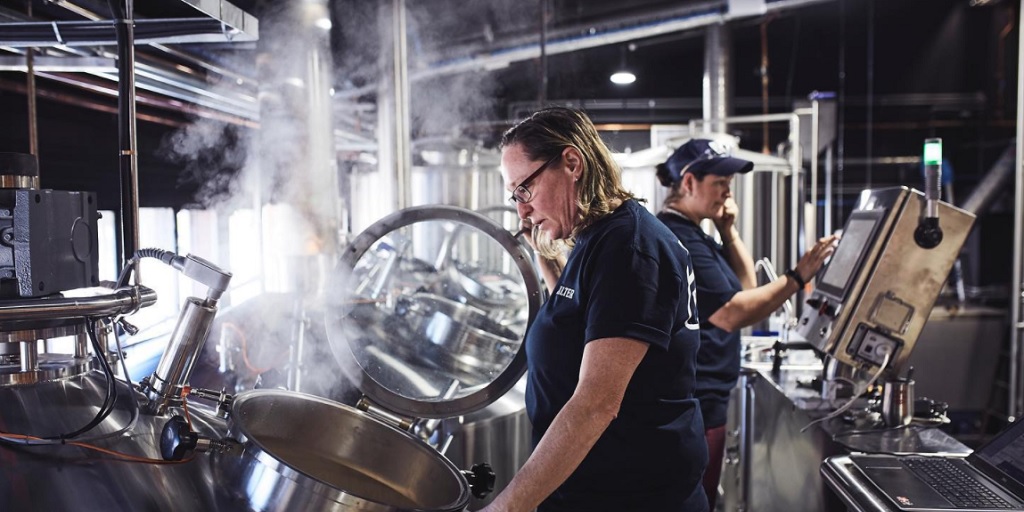
There has been ongoing debate over these more experimental styles in the industry, but the Philter team think there is room for everyone.
“I think it’s great for the industry. A lot of people just want to drink good quality, independent craft beer, and there’s people that want to experiment, everyone has their own style and there are people that like those styles and people who like brewing them,” said Constantoulas.
“Sometimes it doesn’t work for everyone and their strategy has to change, but that’s also part of the process, it’s not smooth sailing every time, a huge amount is about luck, timing, the right beer at the right time, or the right brand with right proposition to the consumer.”
It’s a whole different ball game if you are just starting out.
“For people setting out, you’ve got to be nimble and change your direction if there’s an opportunity and a reason to do so.
“We’ve released beers that have not been as successful, but if there is a hole in the market and there are trends around it [it could find its niche].
“With our Old Ale, no one is playing in that space, it’s a good classic Australian old ale. We thought we’d have a crack at it and it was really successful, and this is the year of the Hazy Pale so we got into that style early.”
Saturation point
Clarity of purpose seems to be the key to Philter’s success thus far, and Mick and Stef suggested that this would be the way forward for new breweries in a competitive market.
“People need to understand what they want out of what they’re doing. Mick and I are from FMCG background. We were clear we wanted to build a strong brand first before the venue, but if you want to build a small brewery with a nice front of house, then go straight into it, if that’s what you want to do,” said Constantoulas.
“People who want to own a brewery, who are in the process or just about to, call me for advice and I always say that the main thing is to be very clear about what you want to do. First off, do you want to be retail or wholesale?
“If it’s wholesale markets, you need to be clear about that strategy. Pricing and sales are built differently on that model, unlike if you’re trying to build that hospitality bit where the margin structure is different.”
With Philter’s growth necessitating a small amount of contract brewing, the near future will see the team completing another expansion programme.
“That’s already well underway, we’re looking at planning where we’re going to fit [equipment and fermenters] and what needs to get moved. But like I said this site has been great, when we took over this site, there had to be a plan. It couldn’t be right for now, it had to be right for years ahead.
“The great thing too, was that when COVID hit, we started working on the rooftop bar, we’ve got some time so let’s get the builders in, then we’re ready to go for spring and summer.”
Philter grew to 1.2 million litres in the last year with a little help from contract brewing. While early second-year projections put them in the 1.6 million litre region, COVID lockdowns have put a slight damper on things, though the team are confident of reaching last year’s levels again.
Once the expansion is complete though, Philter is planning on being able to reach 2.4 million litres. But as the brewery continues to grow in a sustainable way, future planning is underway – to an extent.
“I’ve built a few five-year plans in my time and they’re a fucking waste of time!” said Constanoulas.
“Three years is more realistic. If we’ve maxed this venue and gone through an expansion phase, when the rooftop bar is open, then that’s the stage from a capacity point of view when we look to open a production brewery, or do we open another venue somewhere?”
“The ultimate thing,” said Mick, “is to crack capacity here, and then the most likely next step will be another production venue.”
“Although the thought of opening another brewery…we know what we need to do, we just don’t want to think about it right now!” said Constanoulas.
“We’re happy in this controlled growth phase and really focus on building the business in the right way and maintain integrity in the brand. We’re happy with what we’ve built and the customer base we’ve built. We don’t want to oversell ourselves, just continue to make great beer and hope customers want to drink it.”
Whatever the future holds, Stef and Mick said that a highlight of the past 12 months has been growing the Philter community.
“[I want to thank] our team, we wouldn’t have made it without them and the community support has been so awesome.
“We’ve also had a huge amount of help from the Inner West Brewers Association and other brewers, and it’s really important to build that community as well – without the help from those guys we’d still be stuck in council approvals.
“We’re trying to pass it on where we can to other new brewers in the area who reach out to us and learn from our experiences. Because the best thing about this industry is not only the beer community, but the communities supporting independent beer and family-run businesses.
“During COVID that showed through, that people are out there to support their neighbours.”

